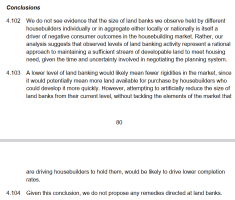Gramsci
Well-Known Member
Whilst I'm at it
Building heigh isn't necessarily building more.
Local council estate near me. Built post war is tower blocks. They are spaced out so each flat gets a lot of light.
On the footprint of land it's not necessarily building more than a low rise development would go have
Building high is ok . If it's done in way that gives people light and space.
Some of this post war design was to get away with what was seen as low rise Victorian built slums.
The blocks near me are the streets in the sky model of post war design.
Surrounded by a lot of green space.
Building heigh isn't necessarily building more.
Local council estate near me. Built post war is tower blocks. They are spaced out so each flat gets a lot of light.
On the footprint of land it's not necessarily building more than a low rise development would go have
Building high is ok . If it's done in way that gives people light and space.
Some of this post war design was to get away with what was seen as low rise Victorian built slums.
The blocks near me are the streets in the sky model of post war design.
Surrounded by a lot of green space.














